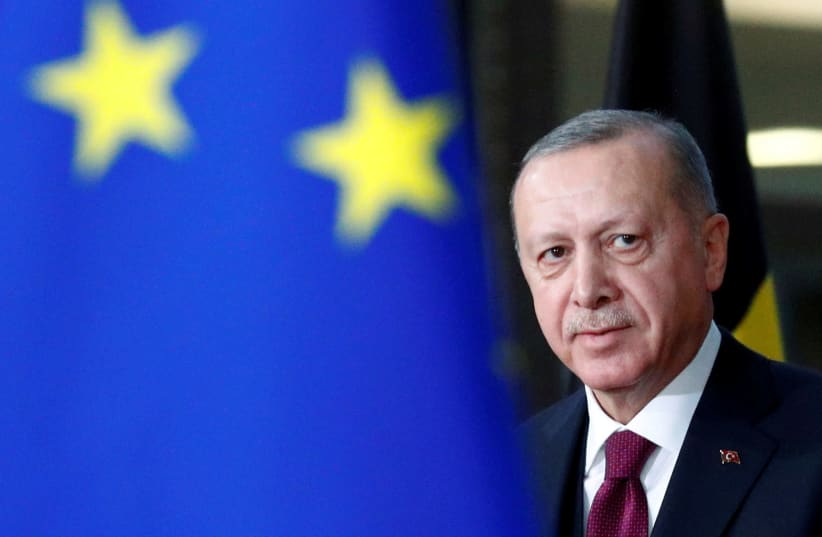Peace talks on the future of ethnically divided Cyprus can take place only between "the two states" on the Mediterranean island, Turkish President Tayyip Erdogan said on Tuesday.
In a speech in the divided Cypriot capital of Nicosia, Erdogan reiterated Turkey's position in a dispute that is damaging Turkey's relations with the European Union and Greece.
Turkey is the only country to now recognize breakaway north Cyprus. It says the only viable option to heal decades of estrangement is for rival Greek Cypriots and the international community to accept the existence of two sovereign entities.
Greek Cypriots, who represent the island internationally and are backed by the EU, reject a two-state deal which would imply a sovereign status to a breakaway state they view as illegal.
"The new negotiation process can only be carried out between the two states. We are right and we will defend our right to the end," Erdogan said.
Cyprus was split in a Turkish invasion on July 20, 1974, five days after a Greek Cypriot coup engineered by the military junta then ruling Greece.
Decked out in red-and-white Turkish and Turkish Cypriot flags, the celebratory mood in north Nicosia stood in stark contrast with the somber mood in the south, where Greek Cypriots were woken by air raid sirens marking the day Turkish forces landed 47 years ago.
The United Nations has grappled inconclusively with the Cyprus conflict for decades.
The simmering dispute is now in sharper focus because of competing claims over offshore energy reserves, and a recent re-opening by Turkish Cypriots of part of Varosha, a ghost resort which was the hub of Cyprus's tourism industry before the war.
